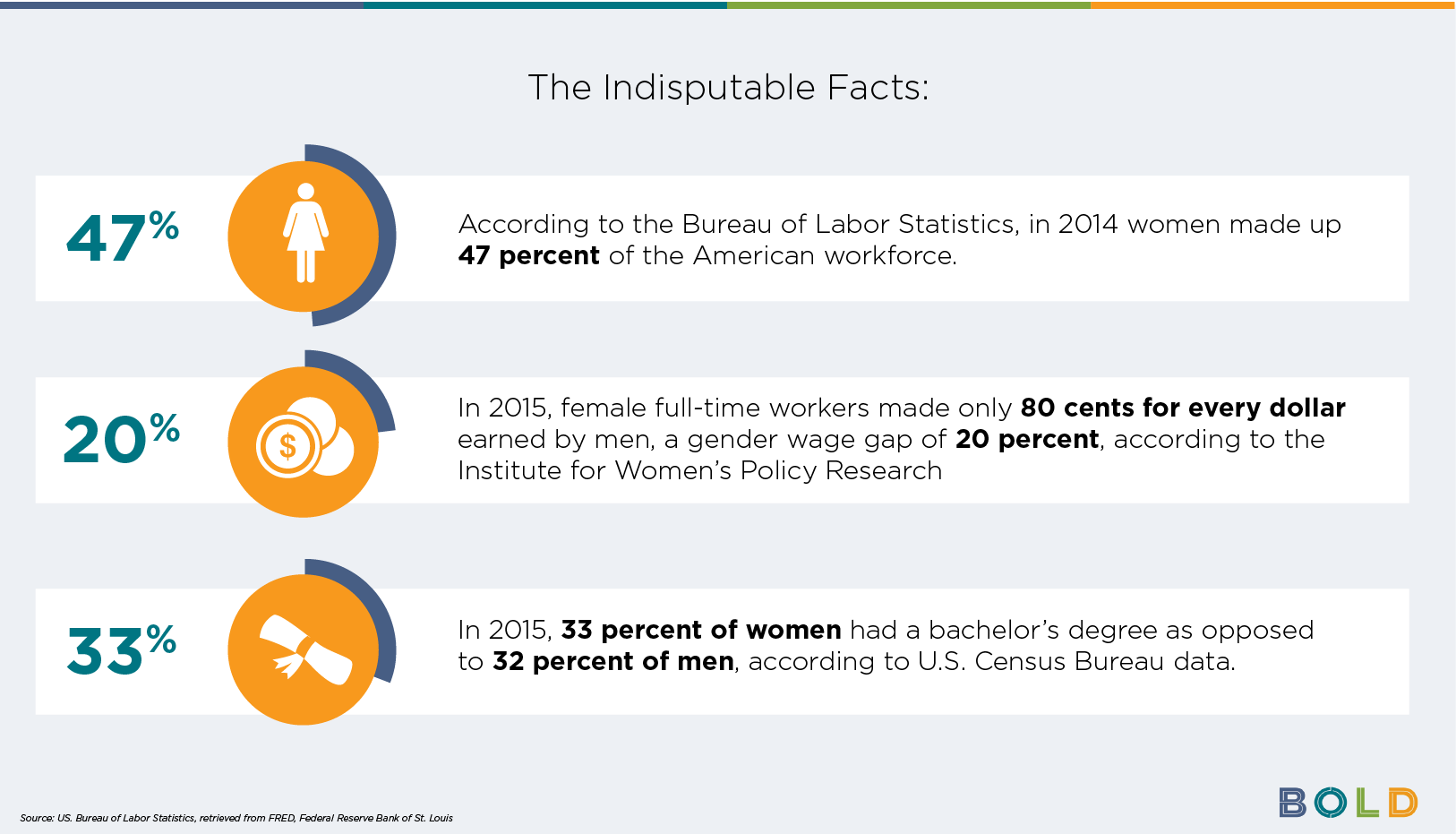TED Talk Outline
TED Outline Format
Topic: How confidence has been weaponized against women in the workforce.
Purpose: To portray to the audience the negative reality of “Confidence Culture’s” effects on gender inequities in the workplace.
Thesis Statement: Despite its intention to empower woman to portray confidence as an advantage, “Confidence Culture” has removed accountability from the root of the problem – gender inequities from the hands of employers.
Introduction
Attention Strategy/Orienting Material: I plan to begin with harsh adjectives commonly used to describe women who present their selves as confident and begin to rebrand the adjectives throughout the duration of the speech.
Body
- Main Idea – Gender norms and stereotypes contribute to the gender gap within the work industry and the way society views working women.
- Due to the preconceived notion that women are less capable than men, women are paid less, promoted less, and experience more unequal treatment through forms like racism, sexual misconduct, and more.
- In the paper, “’Potential’ and the Gender Promotion Gap,” Li found that on average, women received higher performance ratings than male employees, but received 8.3% lower ratings for potential than men. The result was that female employees on average were 14% less likely to be promoted than their male colleagues.
- According to two recent studies conducted at the not-for-profit Institute for Work and Health, it was found that women are four times more likely than men to experience sexual assault or unwanted touching on the job, no matter what occupation or industry they work in. They are also 13% more likely than men to be physically assaulted at work.
- Main Idea – Confidence culture has removed accountability from employers and made self-love a women’s responsibility in order to achieve success.
- Because of the combination of confidence culture and gender norms, no matter the outcome, women’s lack of career progression is blamed on them.
- The Harvard Business Review conducted interviews with 30 male and 36 female senior leaders in order to understand the impact of confidence on men and women’s career trajectories. They found that confidence was only ever mentioned in relation to women’s success and that, for the men, they did not consider confidence a relevant factor. They concluded, “…confidence is a highly gendered word aimed at and adopted by both women and men to explain away the slower progression of women at work.”
- The Harvard Business Review’s study also found that “confidence was linked to more detrimental, longer-term effects, such as self-criticism, self-doubt, and overall poorer mental health.”
- Main Idea — Confidence should not be labeled an end-all-be-all answer to women’s solutions. We need to recognize the reality of the unattainability of unwavering confidence.
Conclusion
Concluding Remark: Instead of encouraging women to “love themselves enough to speak up,” we should be encouraging the people in positions of power to do something with their privilege and ability to cause change.
Visual Content:
Ex. – 
When describing the gender gaps in the workforce in body section #1.
References:
Baker, Darren T, and Juliet Bourke. “How Confidence Is Weaponized against Women.” Harvard Business Review, 20 Oct. 2022, https://hbr.org/2022/10/how-confidence-is-weaponized-against-women.
Smith Senior scientist, Peter. “Women Four Times More Likely to Experience Sexual Assault at Work.” The Conversation, 23 June 2022, https://theconversation.com/women-four-times-more-likely-to-experience-sexual-assault-at-work-108380.